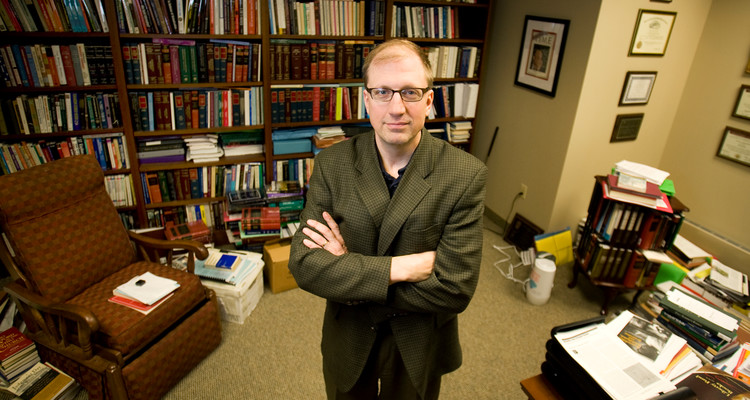The Religious Liberty Appellate Clinic at the University of St. Thomas School of Law has filed an amicus curiae brief in the U.S. Supreme Court, on behalf of major religious organizations and a leading military chaplains alliance, in an important case involving the rights of military personnel under the Religious Freedom Restoration Act (RFRA). The amicus brief supports a petition for certiorari review filed by a Marine corporal, Monifa Sterling, who was court-martialed for, among other things, objecting to a superior's order to remove from her work station three small signs displaying a Bible verse.
Sterling was convicted at her court-martial and sentenced to a bad-conduct discharge and a reduction in pay grade. The military appeals court affirming her conviction said that displaying any religious quotation at the work station could be "divisive" toward other personnel and that the verse ("No weapon formed against me shall prosper," Isaiah 54:17) could be seen as insubordinate toward her superior. The military courts refused to allow Sterling to assert a claim under RFRA, which requires that "substantial [government] burden[s]" on religious exercise be justified by a compelling governmental interest. The courts held that Sterling had not been burdened because she had not shown that the order violated any religious tenet that she display signs, because she had not given clear notice that the signs were religious, and because she had not asked for a religious accommodation through the military's administrative processes.
The certiorari petition and the St. Thomas clinic's amicus brief argue that all these grounds for denying RFRA's application are inconsistent with the statute and precedents. Moreover, they argue, the Supreme Court must review the decision because these grounds would broadly restrict the rights of military personnel—Sikh, Jewish, Christian, and others—to follow their religious practices in the military when it would not undercut combat-readiness or good order.
"The [military courts'] narrow conception of burden," the clinic's amicus brief states, "wrongly rejects claims at the threshold and neuters RFRA’s requirement—equally applicable in the military—that substantial restrictions on religious activity must be justified by compelling governmental interests."
The Court will decide within a few weeks whether to review the case.
The brief was drafted by Andrew Hanson ‘18 under the supervision of clinic director Thomas Berg, the James Oberstar Professor of Law and Public Policy and one of the nation's leading religious liberty scholars and advocates. The organizations joining the brief include several religious denominations; the National Association of Evangelicals; the Christian Legal Society (co-counsel); and the Chaplain Alliance for Religious Liberty, which represents religious organizations certifying 2,600 military chaplains, about 50 percent of those currently serving in the armed forces.
The Religious Liberty Clinic, a part of St. Thomas Law's Legal Services Clinic and Interprofessional Center, gives a small number of students each semester the opportunity to write appellate briefs, primarily amicus curiae briefs, in cases involving religious liberty in the U.S. Supreme Court, lower federal courts and state appellate courts.







